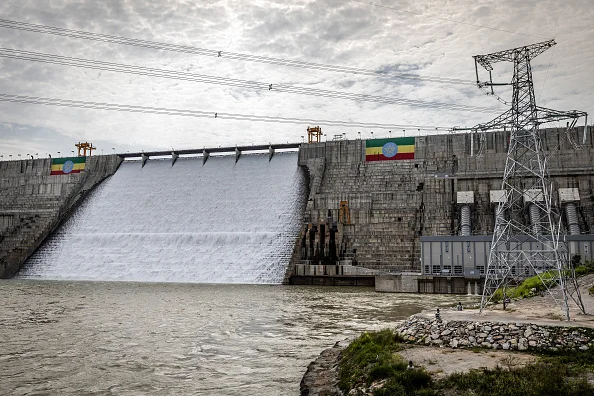Ethiopia celebrated the opening of Africa’s largest hydroelectric dam, the Grand Ethiopian Renaissance Dam, on September 9, 2025, a $5 billion project on the Blue Nile that promises to power millions of homes but has heightened tensions with downstream neighbors Egypt and Sudan.
A Milestone for Ethiopia
With a capacity of 5,150 megawatts, the dam, located in Guba near Sudan’s border, doubles Ethiopia’s electricity output, ranking among the world’s top 20 hydroelectric dams.
At the inauguration, Prime Minister Abiy Ahmed, joined by leaders from Somalia, Djibouti, and Kenya, hailed the dam as a tool to “electrify the region and uplift black people,” insisting it poses no harm to downstream nations.
The dam’s reservoir, larger than Greater London, is also expected to stabilize irrigation and reduce flooding.
Downstream Concerns
Egypt, reliant on the Nile for 90% of its freshwater, fears the dam could limit water during droughts and spark further upstream dam projects, threatening its water security.
Egyptian Foreign Ministry spokesperson Tamim Khallaf emphasized Egypt’s right to protect its interests, citing colonial-era water treaties.
Sudan, while potentially benefiting from flood control and cheap energy, joins Egypt in demanding a binding agreement on the dam’s operations.
Independent studies show no major disruptions to downstream flows so far, thanks to cautious filling during wet seasons since 2020.
National Pride and Funding
The dam, funded 91% by Ethiopia’s central bank and 9% through public bonds and donations, symbolizes national unity in a country grappling with ethnic conflicts. “It shows what we can achieve when united,” said Mekdelawit Messay, an Ethiopian water researcher at Florida International University.
Local farmer Sultan Abdulahi Hassan noted the dam’s immediate benefits, stating, “We now have electricity for refrigerators and daily needs.”
Challenges Ahead
While the dam supports Ethiopia’s growing bitcoin mining industry, rural electrification remains limited, with only 55% of the population accessing electricity in 2022, per the World Bank. Egypt’s strengthening ties with Ethiopia’s rival Eritrea signal ongoing regional friction.
Resolving the Nile water dispute will require cooperative dialogue to balance Ethiopia’s energy ambitions with Egypt and Sudan’s water needs.























